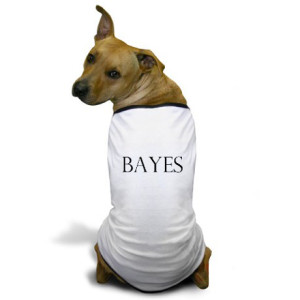Although Bayesians think otherwise, to me there’s nothing magical about Bayes’ theorem. The important thing in science is for you to have strong evidence. If your evidence is strong, then applying Bayesian probability calculus is rather unproblematic. Otherwise — garbage in, garbage out. Applying Bayesian probability calculus to subjective beliefs founded on weak evidence is not a recipe for scientific akribi and progress. Neoclassical economics nowadays usually assumes that agents that have to make choices under conditions of uncertainty behave according to Bayesian rules — that is, they maximize expected utility with respect to some subjective probability measure that is continually updated according to Bayes’ theorem. Bayesianism reduces questions of rationality to questions of internal consistency (coherence) of beliefs, but – even granted this questionable reductionism – do rational agents really have to be Bayesian? As I have been arguing repeatedly over the years, there is no strong warrant for believing so. In many of the situations that are relevant to economics one could argue that there is simply not enough of adequate and relevant information to ground beliefs of a probabilistic kind, and that in those situations it is not really possible, in any relevant way, to represent an individual’s beliefs in a single probability measure.
Topics:
Lars Pålsson Syll considers the following as important: Statistics & Econometrics
This could be interesting, too:
Lars Pålsson Syll writes Keynes’ critique of econometrics is still valid
Lars Pålsson Syll writes The history of random walks
Lars Pålsson Syll writes The history of econometrics
Lars Pålsson Syll writes What statistics teachers get wrong!
Although Bayesians think otherwise, to me there’s nothing magical about Bayes’ theorem. The important thing in science is for you to have strong evidence. If your evidence is strong, then applying Bayesian probability calculus is rather unproblematic. Otherwise — garbage in, garbage out. Applying Bayesian probability calculus to subjective beliefs founded on weak evidence is not a recipe for scientific akribi and progress.
Neoclassical economics nowadays usually assumes that agents that have to make choices under conditions of uncertainty behave according to Bayesian rules — that is, they maximize expected utility with respect to some subjective probability measure that is continually updated according to Bayes’ theorem.
 Bayesianism reduces questions of rationality to questions of internal consistency (coherence) of beliefs, but – even granted this questionable reductionism – do rational agents really have to be Bayesian? As I have been arguing repeatedly over the years, there is no strong warrant for believing so.
Bayesianism reduces questions of rationality to questions of internal consistency (coherence) of beliefs, but – even granted this questionable reductionism – do rational agents really have to be Bayesian? As I have been arguing repeatedly over the years, there is no strong warrant for believing so.
In many of the situations that are relevant to economics one could argue that there is simply not enough of adequate and relevant information to ground beliefs of a probabilistic kind, and that in those situations it is not really possible, in any relevant way, to represent an individual’s beliefs in a single probability measure.
Bayesianism cannot distinguish between symmetry-based probabilities from information and symmetry-based probabilities from an absence of information. In these kinds of situations most of us would rather say that it is simply irrational to be a Bayesian and better instead to admit that we “simply do not know” or that we feel ambiguous and undecided. Arbitrary an ungrounded probability claims are more irrational than being undecided in face of genuine uncertainty, so if there is not sufficient information to ground a probability distribution it is better to acknowledge that simpliciter, rather than pretending to possess a certitude that we simply do not possess.
So, why then are so many scientists nowadays so fond of Bayesianism? I guess one strong reason is that Bayes’ theorem gives them a seemingly fast, simple and rigorous answer to their problems and hypotheses. But, as already Popper showed back in the 1950’s, the Bayesian probability (likelihood) version of confirmation theory is ‘absurd on both formal and intuitive grounds: it leads to self-contradiction.’

